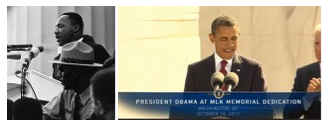Just two weeks ago, on a relatively calm and unobtrusive Thursday, thousands of people celebrated the steps taken 50 years prior during the March for Jobs and Freedom on Washington. The March is a legendary event of the Civil Rights Movement that marks the birthplace of Martin Luther King Jr.’s equally legendary “I Have a Dream Speech”. At the commemoration of The March, President Obama echoed King’s words in a memorable and meaningful speech in the very spot where the latter delivered his famed piece decades earlier. Obama amended King’s “The moral arc of the universe bends towards justice” with a “but not by itself”, encouraging the listeners of his recent address to be “arc-benders” and reminding them that justice is not attainable without the aid of moral-minded men and women.
Coinciding with the very special and celebrated day was the release of Lee Daniel’s, “The Butler”, a brilliantly made film depicting the experiences of a black butler serving in the White House during the Civil Rights movement. Based on real-life presidential butler Gene Allen, the title character, Cecil Gaines, is portrayed by the ever-talented Forest Whitaker, supported by Oprah Winfrey as his wife, Gloria, and David Oyelowo as his forward-thinking son, Louis. Bringing about a perspective absolutely unheard of in the 1960s, not only because of the Gaines’ race but because of the secrecy of the White House, The Butler allows an inside view to White House life paired with experiences of the parent generation of the civil rights movement. While the young black men and women of the 1950s and 1960s were very forward moving in terms of black rights, their parents were very hesitant to disturb the unequal peace they had worked so hard to construct and preserve. Whitaker’s character, sensing the danger that involvement in the movement poses for his sons, is especially unsupportive of civil disobedience and forbids any participation. Of course his wishes fall on deaf ears and his older son, Louis, is arrested countless times throughout the film as a result of his civil disobedience, but the latter grows as he witnesses history unfold before his eyes. Whitaker’s job as a butler to the president also allows glimpses of civil rights history, but also shows White House life for both white and black employees. His character becomes a champion of black rights within the House and proves to be a faithful and loyal employee, considered like “family” to the 7 presidents he serves. Whitaker leads the audience through three decades of Presidential hustle-bustle, employee-ship, and fatherly struggles with an easy grace and command of his role. Oprah Winfrey is a surprise gem in her role as Gaines’ disapproving wife and David Oyelowo is painfully convincing as an insubordinate teenager-turned-politician. Though there are some historical inaccuracies regarding Allen’s own experiences, the film serves as a wonderful tribute to the lives of civil rights activists, their families, and their struggles.
The Gaines face difficulties, as any family does, but their resilience through the hardships and discrimination of the 1960s, 70s, and 80s, immortalize them, and families like them, as the very important “arc-benders” President Obama described in his anniversary address. The film and the celebration of the march both serve as an incredible reminder that the face of the nation changed within a generation. That is certainly something to celebrate.
